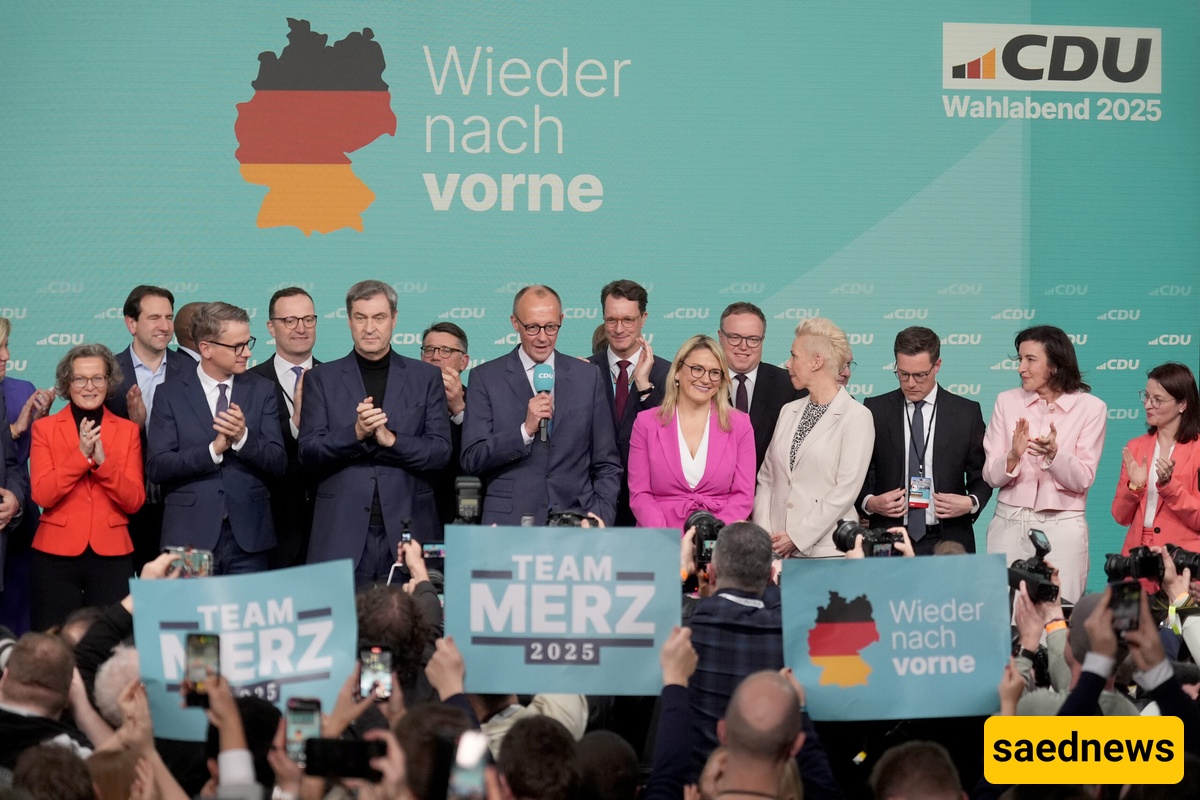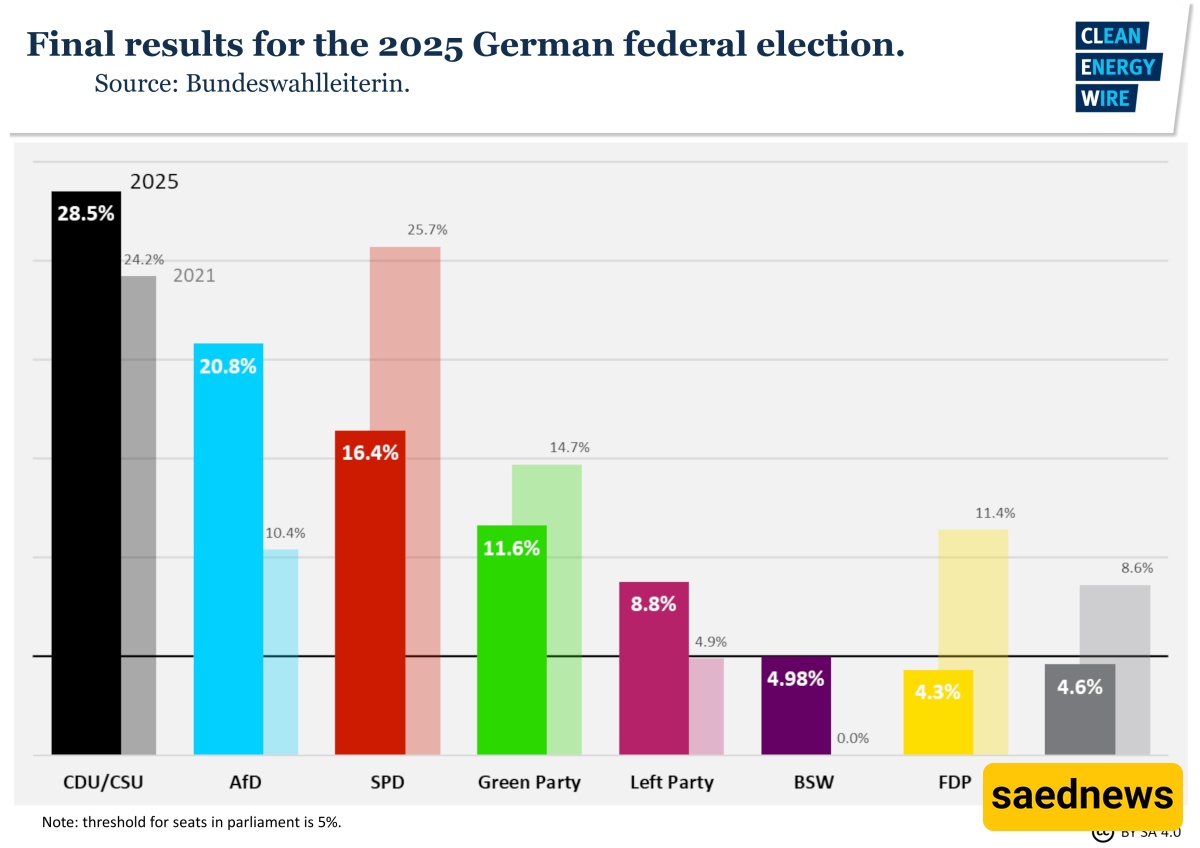SAEDNEWS: In North Rhine-Westphalia’s 2025 local elections, the conservative CDU remains strongest, but the far-right AfD surged, nearly tripling its previous results. Meanwhile, the Greens suffered major losses, highlighting shifting political currents in Germany’s most populous state.

According to Saed News; On Sunday, roughly 13.7 million voters cast their ballots in North Rhine-Westphalia, Germany’s largest state. While the Christian Democratic Union (CDU) maintained its position as the leading party with 33.3% of votes, it was the far-right Alternative for Germany (AfD) that dominated headlines, tripling its 2020 results to 14.5%. Meanwhile, the Greens were clear losers, plunging to just 13.5%, and the center-left Social Democrats (SPD) fell to 22.1%.
The elections included nearly 20,000 parliamentary seats across almost 400 towns and municipalities, as well as mayoral contests in larger cities. While these results do not directly impact Berlin’s federal government, they are widely seen as a litmus test for public sentiment after the new coalition assumed office on May 6.
Martin Vincentz, the AfD’s state leader, described the outcome as “a referendum on the direction of our country.” The surge reflects growing voter frustration and skepticism toward established parties, particularly following crises that have shaken public confidence.
Comparisons to the 2020 elections reveal dramatic changes. Back then, Germany was grappling with COVID-19, and the AfD’s popularity was relatively modest. Since then, political instability, housing shortages, security concerns, and recent conflicts in Ukraine and the Middle East have reshaped public priorities. AfD capitalized on these anxieties, particularly highlighting the lingering impact of the catastrophic 2021 Ahr Valley floods, which claimed 135 lives.

For the environmentalist Greens, the results mark a substantial setback. Once a rising force in North Rhine-Westphalia, they lost significant voter support, underscoring voter concerns about the party’s ability to address pressing issues such as economic uncertainty and migration.
CDU’s Hendrik Wüst, the state’s minister president, warned that even his party could not “rest easy” despite the victory. “This result must give us pause; it means we cannot ignore the voters’ concerns. What are the right answers regarding poverty and migration? Are our social systems truly fair?” Wüst asked.
The AfD also performed strongly in cities like Gelsenkirchen, historically an SPD bastion with high unemployment and large immigrant populations. In these municipalities, AfD now challenges SPD dominance, setting up possible runoff elections between the two parties.
This local momentum is mirrored in nearby Duisburg and other regions, signaling a potentially broader shift in Germany’s political landscape. Observers note that these changes may influence federal politics, especially given CDU leader Friedrich Merz’s own connections to North Rhine-Westphalia.
While CDU’s victory shows stability at the top, AfD’s remarkable gains highlight rising populist sentiment. Analysts suggest that the surge is largely protest-driven, but it underscores growing dissatisfaction with mainstream parties’ handling of crises—from economic challenges to migration policies.
For the federal government, now led by CDU, CSU, and SPD, these results signal an urgent need to address public concerns, re-engage voters, and craft policies that respond to both urban and rural challenges.
The North Rhine-Westphalia elections of 2025 serve as a stark reminder that political tides in Germany are shifting. With AfD’s unprecedented gains, the Greens’ dramatic losses, and CDU maintaining strength, the results offer a snapshot of a population navigating uncertainty and seeking new solutions. The coming months will reveal whether these trends persist and how national leaders respond to the changing political climate.

